|
Here are all the paintings of CASTIGLIONE, Giovanni Benedetto 01
| ID |
Painting |
Oil Pantings, Sorted from A to Z |
Painting Description |
| 20496 |
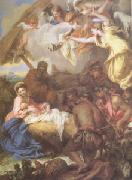 |
Adoration of the Shepherds (mk05) |
Copper 27 x 20 1/2''(68 x 52 cm)Acquired for the collection of Louis XV in 1742 INV in 1742 |
| 20495 |
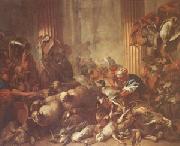 |
Christ Chasing the Moneylenders from the Temple (mk05) |
Canvas 39 1/4 x 49''(100 x 124 cm)Acquired for Louis XV in 1742 |
| 5960 |
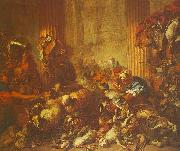 |
Christ Chasing the Moneylenders from the Temple f |
Oil on canvas
Mus??e du Louvre, Paris |
| 58348 |
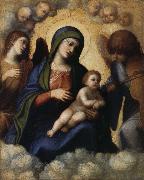 |
Embrace the glory of the Son and Our Lady of Angels |
Mantova mk261 years 1510-1515 oil on canvas 20 x 16.5 cm |
| 77480 |
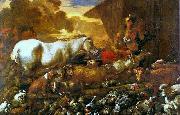 |
Entrada dos Animais na Arca de Noe |
1650-64. Óleo sobre tela, 150 x 221 cm. Acervo do Museu Nacional de Belas Artes, Rio de Janeiro, Brasil.
Date 1650 - 1664
cyf |
| 67693 |
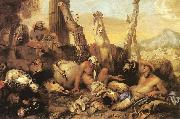 |
Fable of Diogenes |
Year mid-17th century
Technique Oil on canvas
Dimensions 97 X 145 cm
|
| 5962 |
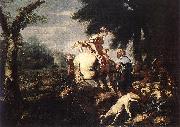 |
Meeting of Isaac and Rebecca fg |
Oil on canvas, 124 x 175 cm
The Hermitage, St. Petersburg |
| 42037 |
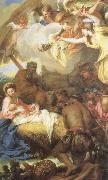 |
The adoracion of the pastore |
mk166
1663-1665
I Wave on copper 68x52cm Museum of
the Louvre, Paris |
| 5961 |
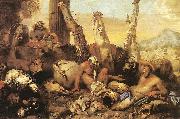 |
The Fable of Diogenes |
Oil on canvas, 97 x 145 cm
Museo del Prado, Madrid |
| 5963 |
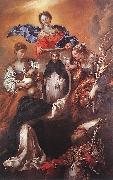 |
The Miracle of Soriano fg |
1655
Oil on canvas, 319 x 204 cm
Santa Maria della Cella, Genoa |
| 42040 |
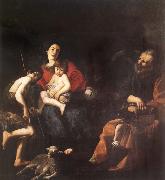 |
The rest in the flight to Egypt |
mk166
1618
I Wave on cloth 205x186cm Uffizi, Florence |
|
|
| CASTIGLIONE, Giovanni Benedetto
|
| Italian Baroque Era Painter, ca.1609-1664
Painter, printmaker and draughtsman. Most of his works are scenes of the journeys of the patriarchs (e.g. Noah, Abraham, Isaac, Jacob), drawn from the book of Genesis and filled with animals and still-life detail. His oeuvre also, however, includes many spectacular mythological and religious compositions set in expansive landscapes, and for these he found inspiration in Classical mythology, ancient history, Aesop's Fables, 16th-century Italian literature and the lives of the saints. Early biographers claim that he was also a prolific portrait painter, but few examples, save the so-called portrait of Gianlorenzo Bernini (c. 1648-50; Genoa, Pal. Bianco), have been conclusively identified. His surviving subjects reveal his interest in magic and metamorphosis and in philosophical questions such as the frailty of human life, the inevitability of death and the search for truth.
|
|

